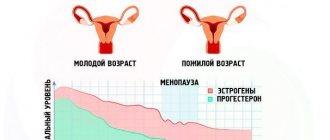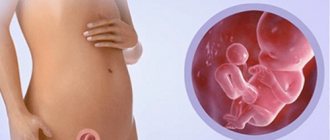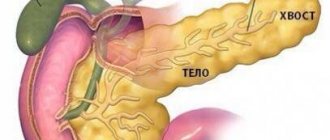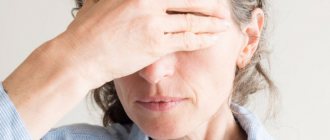What is associated with the onset of menopause?
The symptoms of menopause that appear in women after 40 years are a variant of the norm. This is due to a decrease in the level of sex hormones in the blood, which develops as a result of a gradual decrease in ovarian function. This process takes up to 10 years (for each woman individually).
Slow changes allow the body to adapt without experiencing much discomfort. The woman continues to lead her usual lifestyle. Therefore, for some time you may not even be aware of the changes.
However, in some cases, the aging of the body occurs quickly, and the reproductive system cannot function at the proper level. There is a disruption in the ovarian-menstrual cycle, hot flashes and other problems lead to depression. Psycho-emotional problems arise. A woman experiences unpleasant sensations leading to impairment of physical and mental health.
Tips for menopause after 40 years
It is necessary to carefully monitor your own weight and maintain it at the required level using:
- moderate nutrition with limited animal fats;
- carbohydrates;
- salts;
- alcoholic substances.
A sharp change in weight in any direction is unacceptable, both before 40 and after 44. It is important to stabilize the functioning of the intestines. Therefore, it is advisable to remember about dried fruits, which include dried apricots, raisins and prunes.
Those women who smoke should give up this “killer” habit as quickly as possible.
It is mandatory to:
- undergo a gynecological examination;
- then take a smear test;
- carry out an ultrasound examination to determine the condition of the reproductive organs. Regardless of whether there are any symptoms during menopause or not.
It is advisable to do gymnastic exercises, therapeutic physical education, and walking as often as possible, for 30 minutes five times a week. Practice massage treatments at least twice a year.
It is recommended to discuss the research results with a specialist and how necessary it is to take additional measures after the main treatment, namely hormone replacement therapy, during the period of restructuring of all body systems.
Causes of early menopause
The main causes of early menopause are associated with the influence of pathological factors on the woman’s body. These include:
- poor ecology (exposure to radioactive radiation, dust or gas pollution);
- bad habits (smoking, alcohol abuse, drug addiction);
- frequent stress, overwork, lack of sleep, lack of proper rest for a long time;
- long-term diets leading to insufficient intake of vitamins, minerals and other substances necessary for the functioning of the body;
- chemotherapy or radiation treatment of malignant neoplasms;
- history of medical abortions.
The likelihood of early menopause is increased by genetic predisposition. At the same time, a change in hormonal balance around 40 years is observed in all women in the family (grandmothers, mothers, daughters). In the absence of pronounced manifestations and a smooth course, a genetic predisposition is considered the norm.
In early menopause, a common cause of hot flashes is diseases of the genitourinary system (inflammatory processes in the kidneys and bladder, sexually transmitted infections) and endocrine disorders.
Examinations for menopause
The process of treating menopause occupies a separate chapter in modern gynecology, the problem is so acute. After all, every woman inevitably faces it. Some are a little earlier between the ages of 40 and 44, some are later.
In order for each woman to spend this fairly long stage quite calmly, a whole list of measures should be taken to help preserve women’s health into old age. This will help you overcome all the severe symptoms of menopause more easily.
It is advisable to monitor the level of cholesterol in the blood. To do this, you will need to take a special test for the lipid complex, and then maintain these indicators under constant monitoring in order to maintain health for as long as possible.
It is necessary to establish what the blood sugar level is. This makes it possible to determine whether diabetes is present or absent in a latent phase, which may later manifest itself. And the signs of this will be quite typical for women.
You should check:
- blood pressure not only in the morning, but also in the evening;
- in the remaining time, measure it as often as possible.
It is highly recommended to conduct an ultrasound type test, which will determine the degree of bone density. This will help identify early manifestations of osteoporosis (relevant for women under the age of 51 and beyond). This is especially important for those whose actual relatives suffered from this disease.
It is mandatory to examine the condition of the mammary glands:
- mammography;
- Ultrasound;
- radiothermometry (RTM).
It is necessary to independently monitor the condition of your breasts every month (from 40 to 44 years of age). The integrated use of two methods such as mammography and RTM makes it possible to reduce the number of false negative diagnoses by three to four times. Radiothermometry can be carried out once every three months in order to properly monitor the degree of effectiveness of the prescribed treatment for benign diseases.
The most common signs and symptoms are menopause in women in their 40s
The first signs of menopause in a woman may not be noticeable. These include weight gain, which is associated with a decrease in the production of estrogen and progesterone. Problems arise with the functioning of the gastrointestinal tract - flatulence and bloating develop, and constipation is possible. Women report frequent urination due to weakness, and sometimes slight urinary incontinence.
The first symptoms of menopause include the appearance of complaints about disorders of the cardiovascular system - surges in blood pressure, tachycardia, headache, dizziness. It is possible to develop a reaction of individual intolerance even to familiar foods, medicines, cosmetics and hygiene products.
Sexual desire decreases. The skin loses firmness and elasticity. Hair falls out, splits, and becomes dull. With early menopause, the signs of menopause rapidly increase.
Specific manifestations of menopause:
- Disorders of the ovarian-menstrual cycle. The discharge becomes scanty, or, conversely, abundant. Your periods become irregular and can last 2-3 days or last for several weeks.
- Tides. Characterized by a sharp but short-term increase in body temperature. The woman feels heat throughout her body. Red spots may appear on the arms, chest, neck, and back. At the end of the tide, a sharp chill occurs. Attacks can occur from 1-2 times a week to 10-15 times a day.
- Increased sweating. Most often appears during hot flashes.
- Deterioration of sleep. Insomnia develops. A woman cannot fully rest and sleep. Due to poor sleep, he feels tired and weak in the morning.
- Violation of psycho-emotional balance. Most often it manifests itself as irritation and even aggression. Sometimes depression and tearfulness develop.
- Bone fragility. Due to hormonal imbalance, calcium is intensively washed out of the bones, and new minerals are poorly absorbed. Severe fractures often occur during this period.
- Vaginal dryness. Associated with insufficient mucus secretion. This leads to itching and burning. Intimate life does not bring pleasure and is accompanied by unpleasant sensations.
Menopause and its stages
Menopause is a condition in which there is a gradual decline in the secretion of sex hormones. This is not a disease, but a natural normal age stage, during which three stages alternate:
- “Premenopause” is a period of transition from reproductive to non-reproductive age, when the production of hormones gradually decreases until it stops completely.
This period begins on average at 45 years of age, but can begin with a difference of 5 years - earlier and later than this age. Symptoms of the first stage appear several years before the last menstruation, then continue for a year, after which the next stage begins. This period precedes menopause by an average of four years (average age 47.5 years), and lasts 12 months after it, that is, the time following the cessation of the menstrual cycle is included. It is menstruation, or rather its change, that is the earliest sign of this stage of menopause. The regularity, duration and amount of blood released are taken into account.
Premenopause, as the first stage, is the most difficult due to its unpredictability, significant hormonal transformations in the female body, fluctuations and decreases in estrogen levels. This leads to many unpleasant symptoms, both psychological and physiological.
Some of the most initial manifestations are hot flashes, increased sweating at night, and a rise in temperature. Depression and groundless irritability, sudden mood swings, deterioration of memory and attention are noted. Hormones are to blame for this - a natural decrease in estrogen and progesterone after the age of forty.
- “Menopause” is the time of the last monthly blood loss (menstruation).
Menopausal symptoms do not necessarily appear immediately. For some women, it may take several years since the last menstrual period before obvious signs of menopause occur; for others, they appear within one year. The average female age when menopause occurs is 51 years.
- “Postmenopause” - this stage continues until the end of life, starting a year after menopause.
A woman has a deficiency of sex hormones, as evidenced by hot flashes, night discomfort, sweating, changeable mood, and irritation. Women have to endure such symptoms for two or more years. This is called "early postmenopause."
In the years following menopause, a woman's body, due to a deficiency of sex hormones - estrogens, quickly loses bone mass, vascular changes progress, which increases the likelihood of diseases such as myocardial infarction and osteoporosis. As a result, fractures occur, the most dangerous of which is a femoral neck fracture.
Is it possible to delay the onset of menopause?
There are many questions when problems arise: when early menopause occurs in women over 40 years old, is it possible to postpone it if a physiological process has begun, how to help yourself if the usual way of life is disrupted.
Hormonal changes cannot be completely prevented. However, with the help of certain actions, you can postpone the onset of menopause by several years. This is most important for women who have predisposing factors to the development of early menopause.
To prevent premature decline of reproductive function, a woman must get rid of bad habits. Provide nutritious and fortified nutrition. The diet should include low-fat fish, dietary meat, vegetables, fruits, dairy products, cereals, etc. Drink a sufficient amount of clean water (at least 1.5-2 liters per day).
Do physical exercises or sports, do exercises, run in the morning, ride a bike or go to the pool, and do not neglect other types of physical exercise. Spend a lot of time outdoors.
Avoid stress and overwork. Have an active sex life with one trusted partner.
Long-term use of hormonal oral contraceptives will also help delay the onset of menopause.
What should a woman do?
Early menopause is not a reason to panic. Approaching menopause does not mean that a woman should give up on herself. Modern medicine makes it possible to cope with almost all the negative manifestations of menopause and gives every woman the opportunity to live an active life. What should be done when the first symptoms of reproductive decline are detected?
If hot flashes and other typical manifestations of menopause appear, you should definitely consult a gynecologist. It is also worth visiting a doctor if there is a noticeable disruption in the menstrual cycle before the age of 45. Early menopause in women can be a sign of certain diseases. To exclude a serious pathology, you need to undergo a full examination by a specialist, and only after that decide on the possibility of taking certain medications.
Examination for early menopause includes:
- examination by a gynecologist;
- examination by an endocrinologist;
- hormonal profile (LH, FSH, estradiol and other hormones);
- Ultrasound of internal organs (according to indications);
- Ultrasound of the pelvic organs.
According to indications, the doctor may recommend that the woman undergo a mammogram, as well as visit a cardiologist and therapist.
Other specialized specialists are involved if other serious causes of early menopause are found. Modern medicine can eliminate the symptoms accompanying the onset of early menopause with the help of various medications. The main signs of menopause in women can be removed with quite effective and at the same time safe herbal remedies. If herbal medicines do not help, the doctor may prescribe hormone therapy.
The choice of treatment method will depend on the severity of menopause, the woman’s age and the presence of various chronic diseases. In some cases, physical therapy has a good effect. Correction of psychological disorders is carried out with the help of antidepressants and other medications as prescribed by a specialist.
Menopause is the beginning of a new stage in a woman’s life, and how this time passes depends only on her. You can live through menopause as interestingly and actively as all previous years. Constant movement, balanced nutrition, giving up bad habits - all this will help cope with the negative manifestations of menopause and prolong your health until old age.
How to alleviate the condition when menopause occurs?
A doctor can best tell you what to do during menopause. The necessary tactics for managing the patient are determined taking into account the clinical manifestations of the condition. In the absence of significant manifestations, special treatment is not required. It is necessary to properly organize the daily routine, ensure adequate sleep and rest, and fortified nutrition.
To eliminate hot flashes in women or reduce their frequency and intensity, it is necessary to use synthetic hormones. With their help, you can restore hormonal balance and normalize blood pressure levels. Prevent the occurrence of tachycardia and arrhythmia, which are frequent accompaniments of menopause.
Hormonal drugs are prescribed when night hot flashes occur; the doctor determines how to treat a woman in order to normalize her condition. For this purpose, they often use:
- Products based on synthetic estrogens. These include Divigel, Ovestin, etc.
- Combined medications containing estrogens and progesterones. These are Klimonorm, Femoston, Angelique, etc.
Reproductive system
A number of changes are observed in the reproductive system. Menopause at 40, like early menopause, leads to the loss of the ability to become pregnant. This condition is natural and in most cases there is no cure.
Various changes are possible on the libido side. In some cases, there is a significant increase during menopause, followed by a decline during postmenopause. In others, on the contrary, it fades away and reappears during menopause.
However, sexual intercourse can be painful and unpleasant due to the thinning of the mucous membrane due to hormonal imbalance. The production of vaginal secretions also decreases. This manifests itself as the appearance of itching and burning, both during sexual intercourse and outside of it. In addition, this condition significantly increases the likelihood of developing infections and inflammatory processes in the vagina and mucous membranes.
Which doctor treats you?
Every woman should consult a gynecologist when the first symptoms of menopause appear. This is necessary, firstly, in order to exclude pregnancy and receive recommendations on rational contraception, as well as on hormone replacement therapy.
In addition, it will be useful to contact a cardiologist and examine the state of the cardiovascular system. If a woman is worried about sleep disturbances or headaches, she can consult a neurologist; if she has emotional lability, she can consult a psychologist.
Why does menopause occur at 40 years of age?
The appearance of early signs of menopause is always unpleasant, which alarms and frightens a woman. And usually she begins to look for the cause in the presence of some disease in the sexual sphere.
The onset of menopause should not be considered a serious illness, because it is a natural process that occurs a little earlier than in others. And it cannot be stopped, since this is a consequence of various acquired or congenital factors:
- The presence of a defect in the X chromosome (congenital), due to which the ovaries age prematurely.
- Constant stress and bad habits...
- Diabetes mellitus and thyroid-related diseases.
- Gynecological diseases, including incompletely cured infections.
- Anorexia and obesity.
- Long-term use of medications, including improper use of hormonal contraceptives and previous chemo-radiation therapy.
It happens that the onset of early signs of menopause is associated with a woman’s individual predisposition. But in any case, you need to be attentive to your health, noting the first symptoms indicating its appearance.
Hot flashes
A decrease in the amount of sex hormones produced affects the activity of the hypothalamus, which, as a response, intensively releases luteinizing hormones into the blood. This explains a common symptom of age-related changes: sudden bouts of fever. As a result, menopause at 40 reveals itself according to a number of specific signs:
- sudden lack of air, attacks of suffocation;
- redness of the skin;
- increased sweating in the absence of physical activity and normal body temperature;
- increasing general weakness, lack of desire to engage in physical labor.
- unconditional sensation of heat localized in the neck, chest and face.
The duration of hot flashes ranges from 30 seconds to a minute, and their intensity is determined by the individual characteristics of the body. Despite the fact that hot flashes often do not cause serious concern, increased sweating often causes sleep disorders. Regular sleepless nights lead to exhaustion and loss of mood, as a result of which a woman becomes susceptible to depressive disorders.
At what age does menopause occur in women?
Menopause can occur in women at different ages. Moreover, if necessary, treatment is selected taking into account the symptoms, which can also be different and have varying degrees of severity.
The average values are:
- Premature menopause (30-40 years).
- Early menopause (41-45 years).
- Timely menopause (45-55 years).
- Late menopause (after 55 years).
The onset of menopause is an individual stage for any woman, which cannot be accurately predicted. The age at which a particular woman reaches menopause is influenced by many factors, but the most important are health, as well as regular sex life. It is scientifically proven that women who have regular sexual relations experience menopause later.
This fact is explained by the fact that during sexual contact hormones are produced, the brain receives signals about the demand of the reproductive system, which encourages the body to continue working as usual. Otherwise, the reproductive system “shuts down” as unnecessary and menopause may occur much earlier.
Early and artificial menopause in women
Menopause can occur at any time. Early menopause should be discussed in cases where the menstrual cycle stops in women before they reach the age of 45 years. Even if the symptoms discussed above are mild, treatment in these cases is necessary. Early menopause, as a rule, is a consequence of some pathology.
The main difference between early menopause and normal menopause is that during early menopause there is a reserve of eggs in the ovaries; with appropriate treatment, it is possible to restore the menstrual cycle, ovulation and, as a result, the birth of a child.
The most common causes of early menopause are the following factors:
- diseases of the genitourinary system (for example, the consequences of gonorrhea can be destructive changes in the ovaries);
- diseases of the endocrine system (for example, diabetes);
- obesity or, conversely, following an overly strict diet;
- exposure to radiation, various chemicals, alcohol, and drugs also has a negative effect on the ovaries, as a result of which the production of estrogens stops;
- smoking;
- operations on the pelvic organs, the greatest danger to the reproductive system is represented by salpingo-oophorectomy, extirpation, in which the fallopian tubes and ovaries, or the uterus and appendages are removed, respectively.
If during the natural onset of early menopause the decrease in the amount of hormones occurs gradually, then after surgical interventions there is a sharp drop in the level of estrogen. This condition is usually called artificial menopause. The main indications for creating artificial menopause are diseases of the reproductive system: uterine fibroids, ovarian cysts, endometriosis, malignant diseases.
Due to a sharp decrease in hormones, most women experience symptoms of hormone deficiency some time after surgery. This condition is called postvariectomy syndrome. In 60%, severe post-variectomy symptoms are noted.











